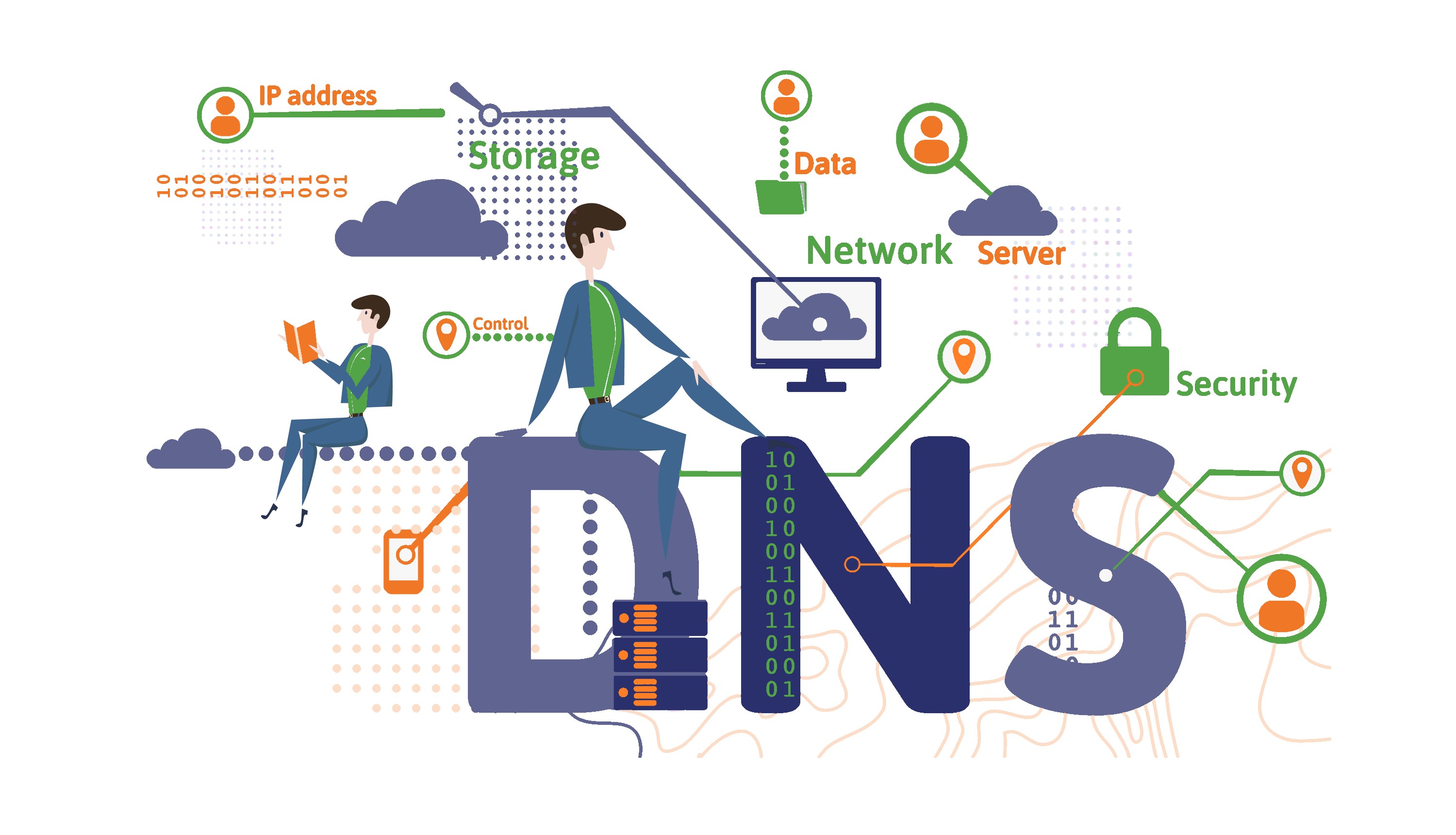The Domain Name Systems (DNS) is the phonebook of the Internet. Humans access information online through domain names, like nytimes.com or espn.com. Web browsers interact through Internet Protocol (IP) addresses. DN S translates domain names to IP addresses so browsers can load Internet resources.
Each device connected to the Internet has a unique IP address that other machines use to find the device. DNS servers eliminate the need for humans to memorize IP addresses such as 192.168.1.1 (in IPv4), or more complex newer alphanumeric IP addresses such as 2400:cb00:2048:1::c629:d7a2 (in IPv6).
DNS Basic:
All computers on the Internet, from your smartphone or laptop to the servers that serve content for massive retail websites, find and communicate with one another by using numbers. These numbers are known as IP addresses. When you open a web browser and go to a website, you don't have to remember and enter a long number. Instead, you can enter a domain name like example.com and still end up in the right place.
A DNS service such as Amazon Route 53 is a globally distributed service that translates human-readable names like www.example.com into the numeric IP addresses like 192.0.2.1 that computers use to connect to each other. The Internet’s DNS system works much like a phone book by managing the mapping between names and numbers. DNS servers translate requests for names into IP addresses, controlling which server an end user will reach when they type a domain name into their web browser. These requests are called queries.
Types of DNS:
Authoritative DNS: An authoritative DNS service provides an update mechanism that developers use to manage their public DNS names. It then answers DNS queries, translating domain names into IP addresses so computers can communicate with each other. Authoritative DNS has the final authority over a domain and is responsible for providing answers to recursive DNS servers with the IP address information. Amazon Route 53 is an authoritative DNS system.
Recursive DNS: Clients typically do not make queries directly to authoritative DNS services. Instead, they generally connect to another type of DNS service known a resolver, or a recursive DNS service. A recursive DNS service acts as a hotel concierge: while it doesn't own any DNS records, it acts as an intermediary who can get the DNS information on your behalf. If a recursive DNS has the DNS reference cached or stored for a period of time, then it answers the DNS query by providing the source or IP information. If not, it passes the query to one or more authoritative DNS servers to find the information










No comments:
Post a Comment